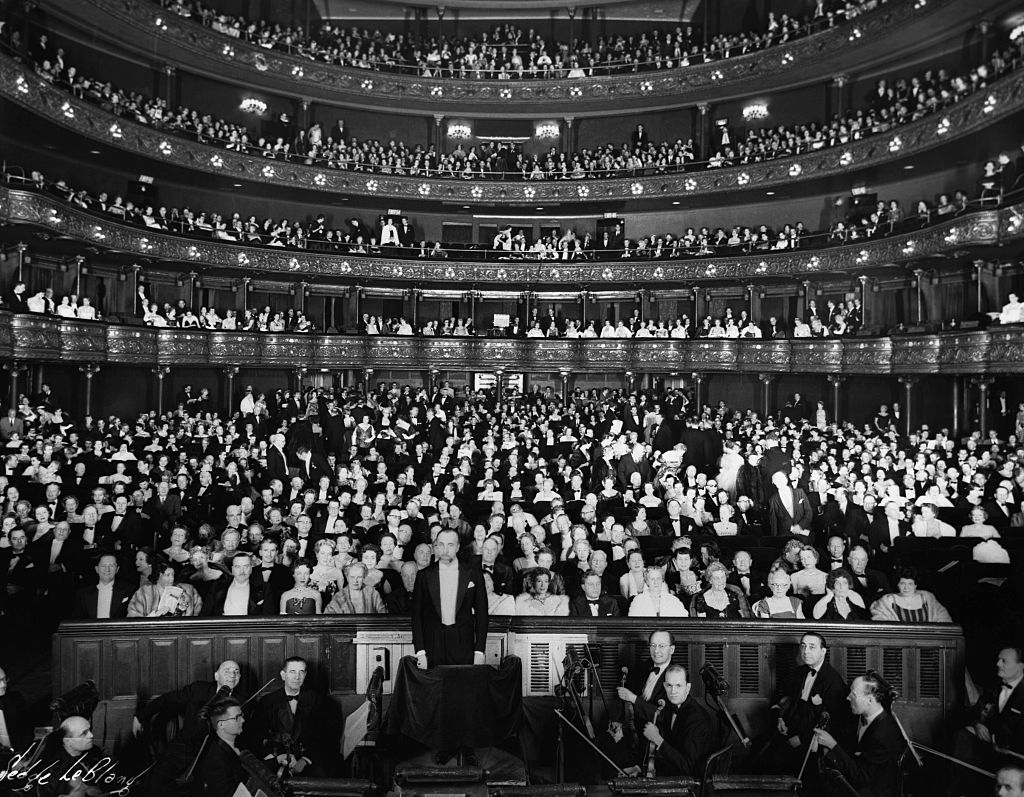Over the past month, I've had plenty of days where my brain insists that I need to get the hell off the computer. This command is an inconvenient one when all of your professional responsibilities are on the computer, but as far as mental health struggles go, it's actually one of the better ones, because it pushes me out of my apartment and into the world of friends and movies and art. I always feel better when I'm among more than just myself—trading an impersonal infinite bombardment for a more intentional communication borne of other people's creativity and love.
Tuesday was rough, but I was lucky to have a ticket to the New York Philharmonic that night—a performance conducted by Karina Canellakis and main-evented by Claude Debussy's sweeping masterpiece La Mer. I have no education in classical music and rarely listen to it on my own, but I do have a sincere appreciation for the craft of playing an instrument, and beyond that respect I also look forward to engaging with these unfamiliar pieces of music, which force my ears to evaluate a brand new sensory experience without much assistance. Like a detective or an explorer, you get the stimulus, and then you have to decide what to make of it. It comes in a language all its own, and your emotional reaction to the message is yours alone.
In this instance, though, I had just a little bit of prep: I entered the hall ready for bouts of silence, because Zachary Woolfe had written about its importance in an earlier review of the program:
The New York Philharmonic is capable of playing quietly; the orchestra just hasn’t always seemed to enjoy it. Particularly under their last music director, Jaap van Zweden, the musicians tended to approach soft dynamics unwillingly, as if they were waiting impatiently for the next explosion.
So it was noteworthy that some of the most memorable passages in the Philharmonic’s excellent concert [...] were the most delicate ones.
He was right. More than a few times I noticed what felt like Canellakis holding pauses for an elongated period of time, like at the very end of the opener Lumière et Pesanteur by Kaija Saariaho. There was this buffer zone between the last note and the applause that comes when the musicians relax, where everyone's holding their breath in uncertain anticipation. And in the third of four pieces, Les Offrandes oubliées by Olivier Messiaen, I got this electric charge in me when it so suddenly veered from this chaos that vibrates in your bones, making you worry the conductor is going to fall off the stand, and into a minimalist fragility that demands intense focus from everyone in the room.
The program booklet on Tuesday referred to Messiaen as a "theologian-musician" and informed me that he viewed some of his works as inextricable from his Catholic faith. I don't know if I've ever felt farther from God than I do right now, but I did feel something sacred in the softness of these sounds.
I don't get a lot of quiet in my life. The city is loud enough that at night I manufacture it with earplugs to sleep, but that isn't the same. In my waking hours I'm aware of neighbors and passers-by at home, or I blast music whenever I go out walking, or—on the very rare occasions I'm not actively listening to anything—I'll hear comments from men or ambient transportation noises. That's a big part of why I go to so many live performances—it's a significant stretch of time where I can force myself to block out the rest of the world, where it's just my thoughts and the art and whatever else is in the room. For the most part, that time is an audience member's to think however they wish—to zone out or concentrate, to lean forward or slouch or try to sit up straight, to look intently at the center or let your eyes wander to the fringes. But never is more asked of them than in an unannounced moment of silence.
In this closed-off mini world, phones are my demon, the antithesis of everything I want to get out of the trip. It only takes one in a huge crowd to drastically change your experience—and the performer's too. Most often, the production just powers through an interruption, but not always. Patti LuPone famously snatched a phone from an audience member 10 years ago, mid-show. Daniel Fish's dark, thrilling take on Oklahoma! several years back seemingly instructed the actors to stop their lines and say "Turn off your phone!" whenever a ringtone began. Most memorably to me, I went to Ruben Santiago-Hudson's monologue Lackawanna Blues in that post-COVID era when people had kind of forgotten how being in public worked, and right at its quiet climax someone got an absolutely blaring phone call on the right edge of orchestra. The whole audience groaned, Santiago-Hudson waited out the blunder, and then we all reset, consciously placing ourselves back in his hands.
It's because of experiences like this that silences at a live performance make me nervous. Those quiet moments turn the audience from passive observers into collaborators. Every single person holds the power to break the mood, and they're participating in the show by maintaining its atmosphere. I tense up at these spots now. I'm on edge because, frankly, I don't trust a random group of people to turn off all their alarms even when it's asked of them. But when we do make it through without disturbance, as the audience at the Philharmonic very much did on Tuesday night, it feels like we all pulled off an awesome trick. We're no longer a collection of individuals and our screens, but a team that's in this thing together.






